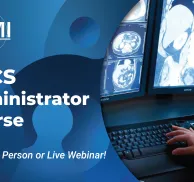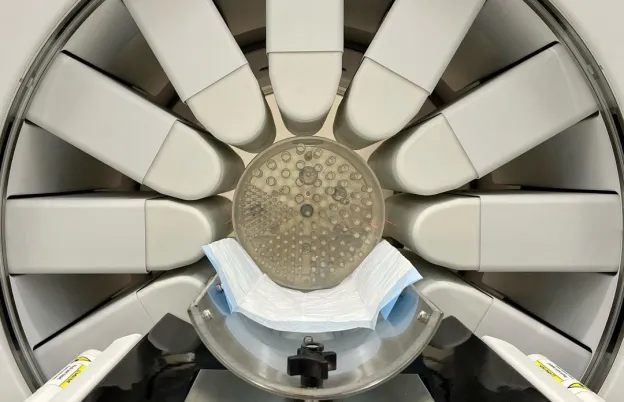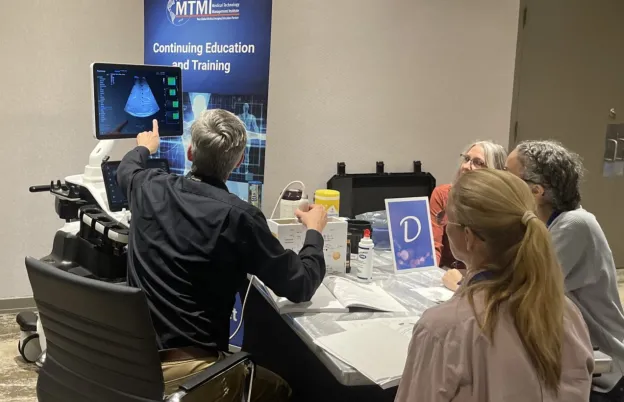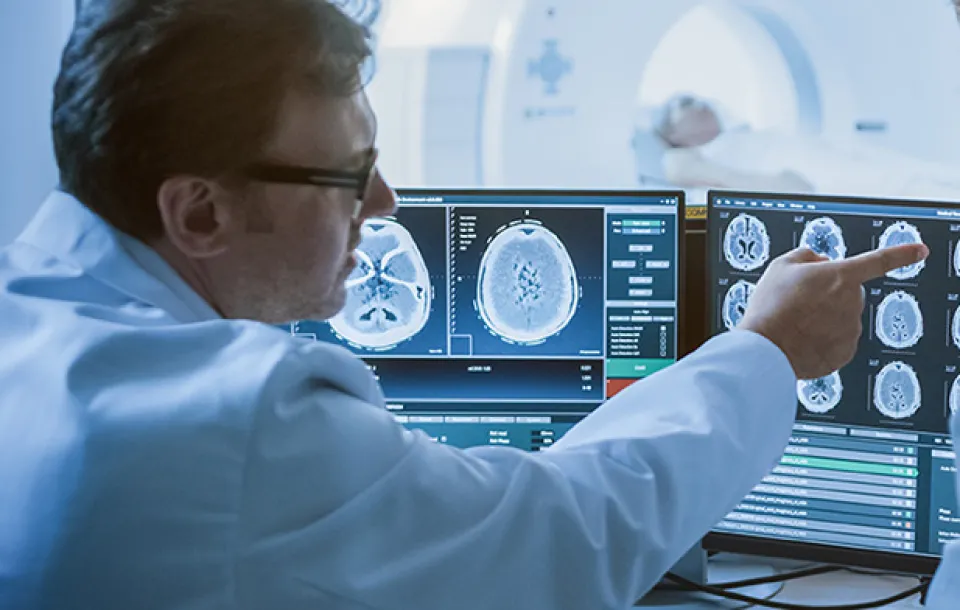
CT Physics Update: Dose and Imaging Quality
About this Program
Protocol and dose optimization are of great importance in computed tomography (CT). It is central to the safe and appropriate use of CT and is now included in some regulations including the standards of accrediting bodies.
Medical physicists, as well as medical physicist assistants and other medical imaging professionals, play a critical role in helping facilities control radiation dose and improve CT protocols to provide valuable clinical information while minimizing risk. To provide support for facilities, physicists must understand the scanner features, and how they impact image quality and radiation dose. This CT scan physics webinar will provide an opportunity for medical physicists to increase their understanding of computed tomography physics, advanced features of scanners, and the accreditation process. Manufacturer-specific information on CT scan equipment features will be presented.
Webinar Convenience - No Need to Travel!
- This CT physics course will be a live webinar broadcast.
- You will experience the lectures from the comfort of your home.
- Asking questions of the instructors is easy via the webinar question box.
Educational Objectives
At the completion of this computed tomography physics webinar, participants should be able to:
- Review the components of multi-detector CT units
- Summarize how the use of contrast can affect image quality
- Explain how radiation dose from CT units is measured and controlled
- Outline the development and optimization of CT protocols
- Discuss the workflow and CT protocol from the technologist perspective
- Recognize the impact of advanced scanner features for various clinical applications
- Design an effective QC program for technologists and the physicist
- Describe how dual-energy techniques affect radiation dose
- Employ the programs, testing requirements and application processes of accreditation bodies
The instructors who lead our webinars, including our computed tomography physics sessions, are true professionals with years of experience in their fields. They are ready, willing, and able to share their CT scan expertise with you.
Interested in earning ASRT Category A or CAMPEP CE? In addition to helping prepare you to excel in CT scan physics, this webinar program provides the opportunity to earn hours of ASRT or CAMPEP CE credits.
~ AAPM endorses the educational component of this program. ~
It does not however, endorse any product used or referred to in the program.
Schedule
What this course will cover
In just two days, this webinar on the use of CT covers everything you need to build and maintain your medical imaging and radiology expertise, including scan modes, quality assurance, setting CT dose alerts, image quality, and more.
Day OneSchedule is subject to change and is listed in Central Time. | |
| 8:00 am | Computed Tomography: A Review of the Technologies
CT Reconstruction Basics
|
| 9:00 am | Image Quality and Dose - Tech Perspective
|
| 10:00 am | Informal Discussion and Break |
| 10:15 am | CT Image Quality Metrics
|
| 11:15 am | Techniques for Measuring CT Dose
Practical CT Clinical Dose Reporting
|
| 12:15 pm | Lunch break |
| 12:45 pm | Workflow and CT Protocols |
| 1:45 pm | CT Accreditation Overview
|
| 2:45 pm | Informal Discussion and Break |
| 3:00 pm | Factors Affecting CT Protocols and Dose
|
| 4:00 pm | Adjourn for the Day |
| |
| 8:00 am | Pitfalls and Solutions to Accreditation Submissions
CT Testing and QA for Physicists and Technologists
|
| 9:15 am | Spectral CT Technologies |
| 10:15 am | Informal Discussion and Break |
| 10:30 am | Using Dose Tracking Software for Optimization |
| 11:30 am | Lunch break |
| 12:00 pm | Fetal Dose |
| 12:30 pm | The Physicist's Role in Optimizing CT Protocols and Dose |
| 1:30 pm | Adjourn |
Audience
Who should attend?
From reducing soft tissue imaging noise to ensuring the right radiation dose for every procedure, this CT physics update is appropriate for anyone wanting to learn about the techniques, procedures and equipment involved in the use of CT, including:
- Medical Physicists
- Medical Physicist Assistants
- Technically knowledgeable CT technologists
- Vendor personnel working in CT
- Others interested in the technology of CT scanning
Program Faculty
Meet your presenter(s)

Frank Dong
PhD, DABR, FAAPM
Frank Dong, PhD, DABR, FAAPM, is a professor of Imaging Physics and section chief of Radiological Physics at UT MD Anderson Cancer Center. Dr. Dong received his Ph.D. degree in Medical Physics from the University of Wisconsin-Madison. Dr. Dong’s specialty is in the field of CT image quality, radiation dosimetry, and advanced reconstruction algorithm. He currently serves as the director for AAPM Diagnostic Review Courses. Dr. Dong has been teaching MTMI’s CT hands-on workshop since 2014.
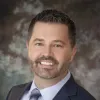
Mark Bake
DBA, R.T.(R)(CT)
Mark Bake is the Chief Academic Officer and a Professor for Bellin College in Green Bay, Wisconsin. He has taught courses related to equipment, ancillary imaging, CT imaging, cross-sectional anatomy, patient care, and has been educating radiography students since 2008. Mark is registered in radiography and computed tomography and has worked in a variety of positions in his career, including a staff technologist and manager in CT. He holds a certificate in radiography, a BS in applied science, an MS in healthcare management and organizational development, and a DBA with a focus on healthcare management and leadership.
Bake is active in education focusing in the healthcare field; in particular, he has developed multiple initiatives geared toward educating high school students about healthcare careers that utilize various hands-on experiences, and has successfully secured grants for medical imaging equipment for Bellin College. In addition to being an active educator and presenter, Dr. Bake has published in various journals and has lectured at state, regional, and national conferences during his career.
Sandra Larson
PhD
Diagnostic Physicist
Department of Radiology
University of Michigan
Ann Arbor, MI
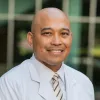
Max Amurao
PhD, MBA, DABR(D,N), MRSE, CMLSO
Max Amurao has been in the Medical Physics and Radiation/Magnet/Laser Safety field for over 20 years. In addition to being heavily involved in Medical Physics education, his clinical practice encompasses Diagnostic Medical Physics, Nuclear Medical Physics, Therapeutic Medical Physics, Radiation and MRI Safety, as well as Laser Safety.
He is a certified Diagnostic Medical Physicist (DABR), Nuclear Medical Physicist (DABR), Medical Laser Safety Officer (CMLSO), Magnetic Resonance Safety Officer (MRSO), Magnetic Resonance Safety Expert (MRSE), and a Health and Safety Professional (CHSP).
Max is based in South Florida and serves as the Executive Director of the Radiation Control program for the University of Miami, University of Miami Health System, and Jackson Health System.
Grant Fong
MS, DABR, DABMP
Diagnostic Medical Physicist
Imaging Institute
Cleveland Clinical Foundation
Credits
Accredited training programs
CAMPEP
This program provides 11.75 hours of continuing education for medical physicists. The program has been approved by CAMPEP for Medical Physics Continuing Education Credit (MPCEC) for qualified medical physicists.
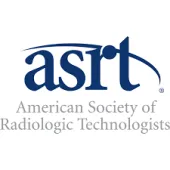
ASRT Category A
This program provides 14 hour(s) of Category A continuing education credit for radiologic technologists approved by ASRT and recognized by the ARRT® and various licensure states. Category A credit is also recognized for CE credit in Canada. You must attend the entire program to receive your certificate of completion.
Tuition

| Audience | Price | Early Price | Member Price | Member Early Price |
|---|---|---|---|---|
| Physicist | $920.00 | $875.00 | $885.00 | $850.00 |
Early Pricing Guidelines
Qualifying 'Early' registrations must be made at least 14 days in advance for the program.
At MTMI, we believe in helping others provide quality care for every patient. We also believe in making high-quality CT training accessible for every healthcare professional in need of continuing education credits and skill upgrades.
Cancellation Policy
“Hands-On” Courses
Refunds, minus a $50 processing fee, will be granted for cancellations received prior to 10 days before the program. Cancellations received within 10 days of the program will receive a credit toward a future MTMI program, minus the $50 processing fee. No refunds will be made after the program starts. MTMI reserves the right to cancel any scheduled program because of low advance registration or other reasons. MTMI’s liability is limited to a refund of any program tuition paid. MTMI recommends that attendees use refundable airline tickets. In case of cancellation of a program for any reason, MTMI is not responsible for travel costs incurred by attendees including non-refundable airline tickets.

